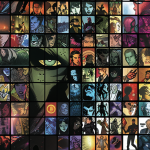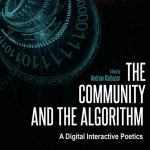machine-writing
Experiments in Generating Cut-up texts with Commercial AI

Can ChatGPT or other Chatbot interfaces really write anything better than a feeble imitation of postmodern cut-up techniques? Polina and James Mackay think so, and they offer some reasons for holding onto a human, guiding intelligence in the writing process.
Comics as Big Data: The transformation of comics into machine-interpretable information

Like so many generic literary reconstructions, comics are now being transformed into information -- a process that, for postdoctoral scholar Ilan Manouach, is concomitant with the expansion of tools and services in the field of generative AI. Like so many AI emergences (and emergencies), this one poses important challenges to the comics industry and the careers of comics professionals.
Automatism for Digital Text Surrealists

With this brief look at Large Language Model surrealism, Nick Montfort locates and identifies "the id of the internet, of publishing, of podcasting."
Off Center Episode 7: Computational Narrative Systems and Platform Studies with Nick Montfort

Scott Rettberg, director of the Center for Digital Narrative (CDN), in conversation with Nick Monfort, who is leading the CDN's Computational Narrative System's research node.
Expanding the Algorithm

Daniel Punday reviews Andrew Klobucar’s edited collection of essays, The Community and the Algorithm: A Digital Interactive Poetics.